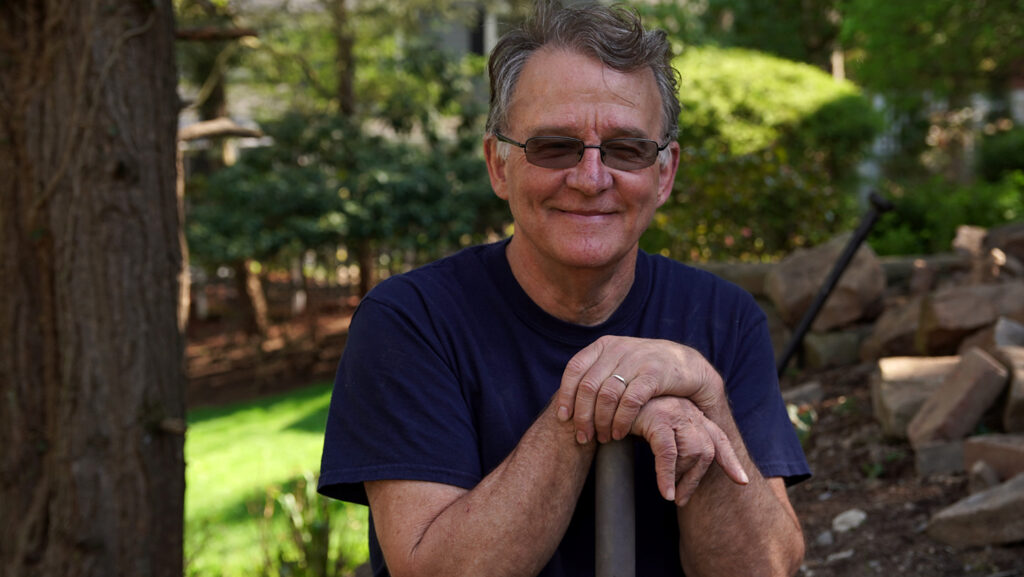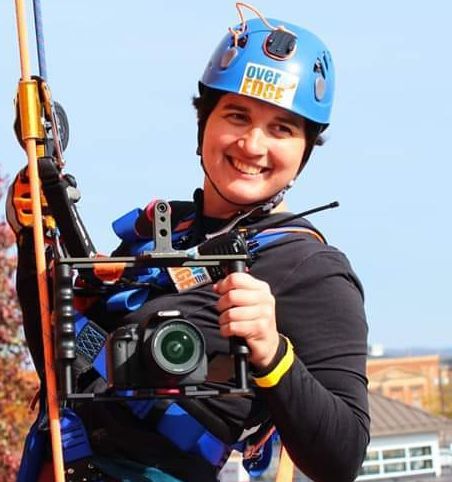
Charles “Chuck” Wannop paused for a moment to collect his emotions. He sat on the back porch of his Williamsport home and took a drink from the plastic water bottle in front of him.
Wannop retired from the Williamsport Vet Center in March 2022, after a 30-year career working with combat veterans grappling with the effects of Post Traumatic Stress Disorder.
As he sat on his porch, the former mental health counselor recalled a story that may seem unimportant to anyone unfamiliar with PTSD and how it affects sufferers. For these combat veterans, though, it was a hard-fought victory. Wannop remembers it like it was yesterday.
It was in 1992 on the psychiatric floor of the Buffalo, N.Y, Veteran Affairs. A small group of veterans sat in the common area of their cramped, in-patient facility that they carved out for themselves across the hall from a home for older men struggling with dementia.
The 28-day program was one of the first of its kind and had been launched as a concerted effort to understand and care for veterans whose lives had been wrecked by PTSD. Wannop and two others became its first counselors.
It was underfunded, understaffed, and Wannop, like many others in the early days of PTSD support, knew very little about the illness, which often alienated combat veterans from a society they hoped to rejoin after long periods of intense stress and trauma.
On this evening, the war-torn group gathered together to watch the 1992 Olympic boxing match on TV, reveling in simple companionship. It was an American boxer battling a Russian during the o, and the American won. As the United State’s national anthem began to play, the room fell silent.
Wannop paused again as he remembered that night.
“You could have heard a pin drop. The emotion. It was awesome,” Wannop said, choking back his own tears 30 years later. “I knew right then that … this was gonna happen.”
Despite the limited resources and the diverse array of men who filled the room, Wannop knew, “We could do this together. People were going to benefit, we were going to work this out together despite limited resources and even knowledge about the disorder.”
What is PTSD?
The symptoms of PTSD have been a part of society since ancient history. While not relegated to soldiers in combat, this mental disorder grew among the ranks of men and women experiencing the most horrible moments of war. In the past, it was called “shell shock, combat fatigue, soldier’s heart or war neurosis.”
Throughout the decades, methods of treatment ranged from electrotherapy and even public ridicule, which was used during the Civil War to break a person of their so-called “nostalgia,” as it was seen as a weakness.
Veterans returning from wars such as World War II, the Korean War, the Vietnam War or Operation Desert Storm often sank into alcoholism or drug abuse. Others may have simply shied away from society, uncomfortable being around large crowds or in situations they could not control.
“You could see the sense of alienation, like they didn’t feel like they fit in the planet,” Wannop said. “With their experiences, socially, they had anxieties… It’s just overwhelming keeping track of their senses.”
In 1980, the American Psychiatric Association added PTSD to the third edition of its Diagnostic and Statistical Manual of Mental Disorders.
Today, about 7.7 million American adults have been diagnosed with PTSD, according to the Anxiety and Depression Association of America.
“You see people getting better”
Wannop is no stranger to the effects of PTSD. Before spending 30 years as a counselor for combat vets, his father, who served in WWII, spent time in the same hospital Wannop would work in years later. He also regularly visited with a psychiatrist as he dealt with the horrors he faced in wartime.
Wannop remembers his father’s struggle “It was a whole different attitude toward therapy and mental illness,” he said, adding that his dad could have benefited from the in-patient care that Wannop spent his career providing.
Even in the 1980s, when Wannop was getting his master’s degree, PTSD was rarely discussed in the education curriculum.
“I really didn’t know what I was up against at the time. I was very enthusiastic,” Wannop said. “It just seemed like a fantastic gig to be working with vets, especially with PTSD.”
As vets began participating in the program, the impact was almost immediate, Wannop said. Veterans who had felt isolated for so long came together to share their experiences.
Wannop and two other counselors were the primary staff for the facility. In the early days, everyone was learning. Patients and counselors were working to find the good moments out of a mountain of depression, anxiety and trauma.
“Whenever we got everybody together… you would get this feeling that was better than any drug,” Wannop said. “You could feel like you could break out of it and we were doing that together.”
At the end of 28 days, participants, who had found a new wave of acceptance, were sent out into the world again and expected to find their own way forward.
“And then the hard part was that we had to cut them loose and watch them go back into the world and it wasn’t always perfect for them,” Wannop said.
The hospital often brought participants back for additional stays, sometimes just for a couple of nights at a time.
As the program grew and continued to find success, more resources were devoted to providing services for combat veterans. Eventually it moved to a larger facility in Batavia outside of Buffalo with more space and staff.
‘It ain’t all shit’
In 1998, Wannop came to Williamsport. He took a job at the Vet Center on West Fourth Street and spent the next 24 years working with combat veterans in an out-patient capacity.
Since PTSD was recognized as a mental health condition, the education and awareness for individuals has seen vast leaps of progress, Wannop said, adding that he saw a massive public transformation after the Sept. 11, 2001, terrorist attacks.
“All of a sudden it was the pro-vet atmosphere,” he said. Vietnam vets who were rarely thanked for their service were now recognized and appreciated.
Today, there are more counselors, more avenues of support and more compensation for vets, Wannop said. But most importantly, the public is more sympathetic to the reality of mental health issues.
Nevertheless, there is no cure for PTSD, Wannop said.
Veterans who he began working with over 20 years ago continued to come to his office until the day he retired in March.
“One of the best ways to cure PTSD is to not have wars,” Wannop said.
During his counseling sessions, Wannop encouraged his vets to focus on the good experience from their time in war as well as their current lives – the comradery with their brothers in arms and creating satisfying relationships.
“I didn’t dwell on problems. I talked about what was good,” he said. “I made it my mission to not get stuck in the shit … which is real and that’s why they’re coming… but it aint all shit.”





Thank you Anne for your insights and sensitivity to this complex and real issue! Good for you and for on the Pulse!
I know Chuck Wannop personally. He is our next door neighbor. He is as authentic as the article portrays him. Chuck is one of the kindest, most sensitive and compassionate people I know! You can cry with you as well as laugh with you…. My wife and I are proud of Chuck and his family! He has made a difference in countless lives including ours! I always welcome those words I expect to hear when I see him, “Hey buddy!”
Thanks Chuck! You are a good man and a good man is hard to find!
From the heart,
John B.
Neighbor & Friend